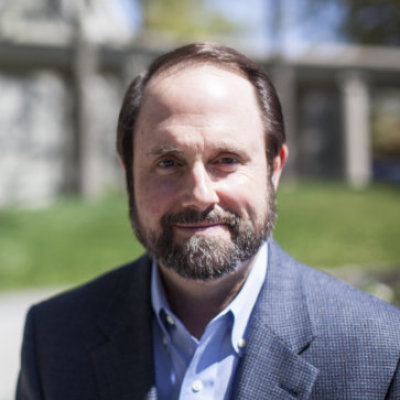What Harvard Study Says About Kids Raised in Church

A new Harvard study investigated the health and mental health of children and teenagers who were raised with religious or spiritual practices. What they found was fascinating.
Those who attended religious services at least once a week as children or teens were about 18 percent more likely to report being happier in their twenties than those who never attended services. They were almost 30 percent more likely to do volunteer work and 33 percent less likely to use drugs in their twenties.
In addition, people who prayed and meditated individually on a daily basis had more life satisfaction, were better able to process emotions, and were more forgiving. They were less likely to have sex at an earlier age and to have a sexually transmitted disease.
The Forbes article reporting on the study concludes: "Some of the fundamental habits that humans have been doing for eons (praying, meditating) might actually have a lot more value than we tend to think."
By God's design, a divine-human partnership is essential to human flourishing. Consider an example.
"A sword for the Lord and for Gideon!"
The future of Israel was in jeopardy. A massive Midianite army numbering 135,000 troops (Judges 8:10) was ready to annihilate the Jewish forces. Gideon mustered 32,000 soldiers, but the Lord led him to dismiss all but three hundred (Judges 7:2-8). God's purpose was to show the Israelites that their deliverance came from the Lord and not from their hand.
Armies in the ancient world conveyed signals through "trumpets" (usually rams' horns). They often marched at night to the light of torches. Gideon's original army had three hundred such trumpets and torches. The torches were carried inside clay jars so as not to alert the enemy, then the jars were broken when the assault was to begin. The trumpets were used to convey orders to the troops.
Gideon's forces advanced on the Midianite army, each carrying a torch in one hand and a trumpet in the other (Judges 7:16). Note that they had no capacity to carry a sword, spear, or shield. They were marching defenseless against a massive military enemy.
Then, at Gideon's direction, they smashed the jars, blew the trumpets, and shouted, "A sword for the Lord and for Gideon!" (v. 20). Then "the Lord set every [Midianite] man's sword against his comrade and against all the army" (v. 22). In the darkness and their confusion, the Midianites slaughtered each other, then Jewish soldiers captured their leaders (v. 25) and completed the victory.
This was one of the most miraculous outcomes in military history. And it hinged on the binary faith of Gideon's men as they trusted in their Lord and in their general.
Why doesn't God work today as he did in the Bible?
Charles Spurgeon noted: "If we only cry, 'The sword of the Lord!" we shall be guilty of an idle presumption; and if we shout, 'The sword of Gideon!' alone, we shall manifest idolatrous reliance on an arm of flesh: we must blend the two in practical harmony, 'The sword of the Lord, and of Gideon!'"
We are to trust God to do what only he can do, then join him by doing what only we can do.
I am sometimes asked why we don't see the Lord at work today in ways he worked in the Bible. God's nature cannot change–as the Supreme Being, by definition he can never be less than supreme. With God "there is no variation or shadow due to change" (James 1:17), for "Jesus Christ is the same yesterday and today and forever" (Hebrews 13:8).
Nor does human nature change. We face the same temptation to "be like God" that Adam and Eve faced in the Garden (Genesis 3:5). We feel the same fears and cherish the same hopes. While technology changes more rapidly than ever, the humans who invent and use it do not.
So, why don't we see God's miraculous power on display today as when he defeated the Midianites and saved Israel? Consider three facts.
One: God works in ways we don't see.
In a list of the world's largest churches by attendance, the top seventeen are not in America. The largest church in the US is one-tenth the size of the largest church in South Korea. God is still working in biblical ways, whether we see his hand at work in our culture or not.
Two: God works where he's expected.
Philip Yancey: "As I travel and also read church history, I have observed a pattern, a strange historical phenomenon of God 'moving' geographically from place to place: from the Middle East to Europe to North America to the developing world. My theory is this: God goes where he's wanted."
I have witnessed New Testament Christianity in Cuba–miraculous healings, empowered worship services, broken lives transformed by the gospel. One difference between Cuban and American Christians is that Cubans know how much they need God. So they pray with passionate dependence and expect the Lord to answer according to his perfect will.
Do we?
Three: God works where we join him.
Noah built the ark; Moses held his staff over the Red Sea; the priests stepped into the flooded Jordan river; Peter preached at Pentecost; John worshiped on Patmos. They did what they could do at God's initiative, and God did what he could do. He led, and they followed.
One time in Cuba, I developed a debilitating headache. There were no medicines available. But the pastor brought a one-hundred-year-old church member named Benjamin to see me.
Benjamin prayed for me as he anointed my forehead with oil. My headache disappeared. I was amazed, but Benjamin was not. He did what he could do, and God did what he could do.
Who needs you to be their Benjamin today?
Originally posted at Denison Forum.





















